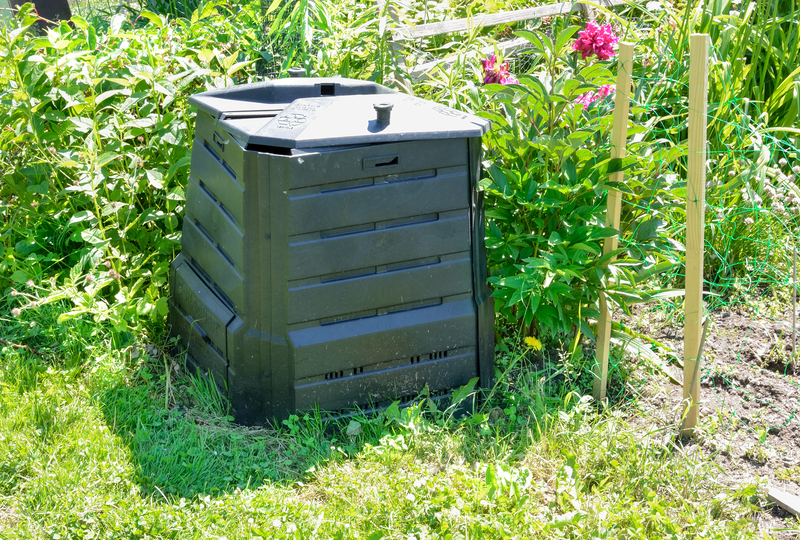Eco-Friendly Solutions for Common Household Products
Posted on 21/02/2024
Protecting the Planet and Your Pocket
In recent years, there has been a growing concern about the negative impact that our daily activities have on the environment. While we may not realize it, many of the household products we use on a regular basis can have harmful effects on the planet. From chemical-heavy cleaning products to single-use plastic items, our consumption habits are taking a toll on the Earth.
The good news is that with a little effort and conscious decision-making, we can all play a part in protecting the planet. By choosing eco-friendly alternatives for our common household products, we can significantly reduce our carbon footprint and contribute to creating a cleaner and healthier environment for future generations. Let's dive into some simple yet effective solutions that can help us make more sustainable choices in our daily lives.
Cleaning Products
One of the biggest culprits of environmental pollution is traditional cleaning products. Most conventional cleaners contain harsh chemicals that not only harm the environment but also pose health risks to humans and animals. They often end up in water bodies, causing damage to aquatic life and contaminating our water sources.
Thankfully, there are plenty of eco-friendly options available today that are just as effective at cleaning without harming the planet. Look for products that are biodegradable, plant-based, and free from toxic chemicals such as bleach, ammonia, and phthalates. These natural cleaners are not only better for the environment but also safer for your family. You can also make your own all-purpose cleaner using simple ingredients like vinegar, baking soda, and essential oils.

Plastic-Free Alternatives
Single-use plastic items like bags, straws, and water bottles are major contributors to pollution and take hundreds of years to decompose. To combat this issue, opt for reusable alternatives such as cloth or mesh bags when grocery shopping, bamboo or metal straws for drinks, and refillable water bottles. These small changes in our purchasing habits can have a significant impact on reducing plastic waste that ends up in landfills and oceans.
Another popular plastic-free alternative is using beeswax wraps instead of plastic cling wrap. These eco-friendly wraps are made from cloth infused with beeswax, jojoba oil, and tree resin, making them a safer and more sustainable option for storing food. They can be washed and reused multiple times, reducing the need for single-use plastic wrap.
Energy-Efficient Appliances
Household appliances such as refrigerators, washers, dryers, and dishwashers are constantly running and consuming energy. By choosing energy-efficient models, we can significantly reduce our household's energy use and decrease our carbon footprint. Look for appliances with an ENERGY STAR rating, which means they meet strict energy efficiency guidelines set by the Environmental Protection Agency (EPA).
You can also make small changes to your daily habits to conserve energy. Turn off lights when leaving a room, unplug electronics when not in use, and try air-drying your clothes instead of using the dryer.

Pros and Cons
While there are numerous benefits to switching to eco-friendly household products, it's important to consider any potential drawbacks. One of the main concerns is the initial cost of these products, which may be higher than conventional options. However, in the long run, they often end up being more cost-effective due to their longer lifespan and reduced need for replacements.
There may also be accessibility issues in certain areas where eco-friendly products are not readily available. However, with the increasing demand for sustainable options, more businesses are starting to offer these products at affordable prices.
Tips and Takeaways
Here are some key takeaways to keep in mind when looking for eco-friendly solutions for household products:
1. Read labels carefully: Look for products that are labeled "eco-friendly" or "natural" but also check the ingredients list to ensure they truly are environmentally friendly.
2. Choose reusable over disposable: Reusable products may have a higher upfront cost, but they last longer and save you money in the long run.
3. Research eco-friendly brands: Educate yourself on different brands that prioritize sustainability and support them through your purchases.
4. Make use of what you already have: Instead of buying new cleaning supplies, repurpose old t-shirts or socks as cleaning rags.
Conclusion:
In conclusion, by making small changes in our daily habits and purchasing decisions, we can all contribute to protecting the environment. Eco-friendly solutions for common household products not only help reduce our carbon footprint but also promote a healthier and cleaner planet for present and future generations. Let's take a step towards a more sustainable lifestyle and do our part in creating a better world for us all.

